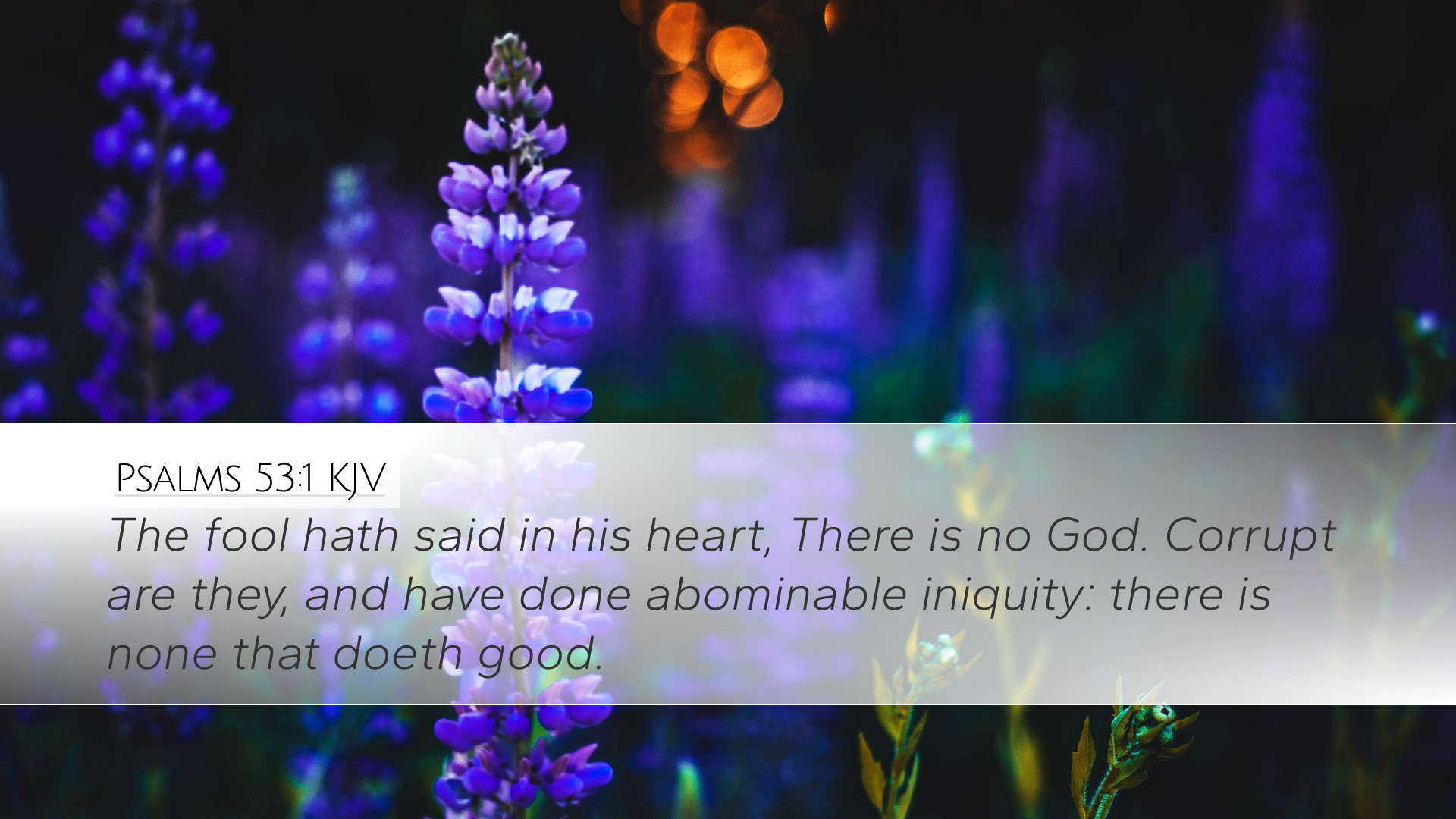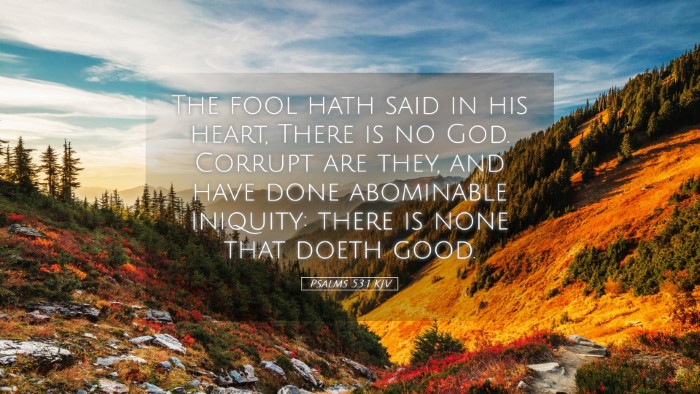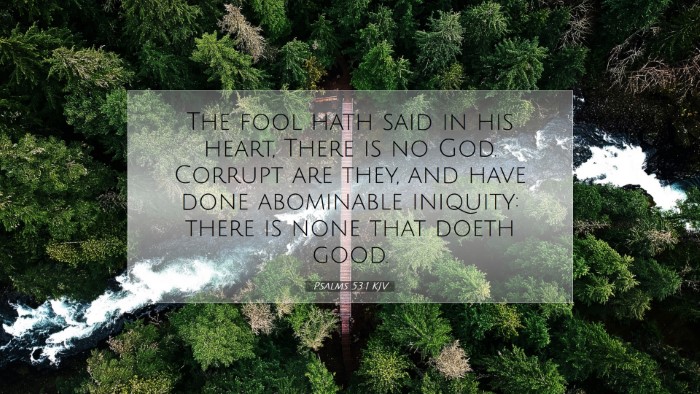Psalms 53:1 - Commentary Overview
Verse Text: "The fool hath said in his heart, There is no God. Corrupt are they, and have done abominable iniquity: there is none that doeth good."
Introduction
This verse from Psalms serves as a profound declaration about the nature of disbelief and the moral implications that arise from the rejection of God. It is significant not only for its theological assertions but also for its application to human ethics and wisdom. The insights we draw from esteemed public domain commentaries provide a multifaceted understanding of this verse.
Summary of Commentaries
-
Matthew Henry's Commentary
Henry categorizes the fool as someone who has a deep moral folly rather than mere intellectual deficiency. This perspective highlights that the denial of God's existence is not only an intellectual stance but also reflects a deeper moral degradation.
The term "fool" (נָבָל, naval) encompasses not just a lack of knowledge but a refusal to acknowledge God’s sovereign authority. Henry emphasizes that this refusal is an active choice that leads to corrupt behavior. He further points out that the fool's heart is intertwined with their actions, indicating that inward beliefs manifest outwardly through abominable deeds.
-
Albert Barnes' Notes on the Bible
Barnes interprets this verse as reflective of a broader existential condition where civil society is tainted by the disbelief in God. He marks the distinction between a mere denial of God's existence and the practical implications of such denial, concluding that a society that shuns God will inevitably face moral decline.
He notes the phrase "corrupt are they" is indicative of communal guilt and collective wickedness. Barnes describes how this corruption pertains not only to individual acts but a systematic failure to recognize divine moral order. He urges readers to consider the ramifications on both personal spirituality and societal structures that emerge from a godless worldview.
-
Adam Clarke's Commentary
Clarke delves into the psychological component of atheism, indicating that denial of God stems from an inner rebellion against divine authority. He supports the notion that the “fool” epitomizes a rebellious spirit that desires autonomy from God's dominion. Clarke highlights that this rebellion is often clouded by pride and self-importance, resulting in moral blindness.
Clarke’s exposition suggests that this denial leads to "abominable iniquity," a phrase that denotes heinous sins devoid of any moral compass. He warns that the spiritual blindness and resulting wickedness ultimately lead to a devastating futility in one’s search for meaning outside of God.
Theological Implications
When synthesizing these insights, several theological implications arise:
-
The Nature of Atheism: The verse serves as a stark indictment of atheism, presenting it as not merely an intellectual stance but as fundamentally indicative of moral failure and spiritual blindness.
-
Corruption and Accountability: The collective nature of corruption highlighted by this passage suggests a societal accountability for the spiritual state of the populace. This emphasizes the responsibility of believers to bear witness to God's truth within the community.
-
The Relationship Between Belief and Conduct: The connection between one’s beliefs about God and moral behavior underscores a critical aspect of biblical ethics, which insists that true knowledge of God leads to righteous living as reflected in both personal and community conduct.
Practical Applications
For pastors, students, and theologians, the implications of this verse encourage several practical approaches:
- Teaching and Preaching: Emphasize the moral consequences of denying God, and engage responsibly with those who question faith, providing clear connections between belief and moral integrity.
- Community Engagement: Address societal issues by highlighting the need for a God-centered moral framework that fosters integrity and righteousness in public life.
- Self-examination: Encourage individuals to introspect on their own beliefs and actions, ensuring they align with a robust understanding of God as revealed in Scripture.
Conclusion
Psalms 53:1 serves both as a cautionary reminder of the repercussions of denying God's existence and a clarion call for believers to affirm the truth of God’s sovereignty. The insights from Matthew Henry, Albert Barnes, and Adam Clarke weave together a narrative that elucidates the dense relationships between knowledge, belief, and ethical behavior. As we ponder these reflections, it becomes clear that a vibrant faith must inform and transform every aspect of our lived experiences, leading us into deeper faith and moral responsibility.


